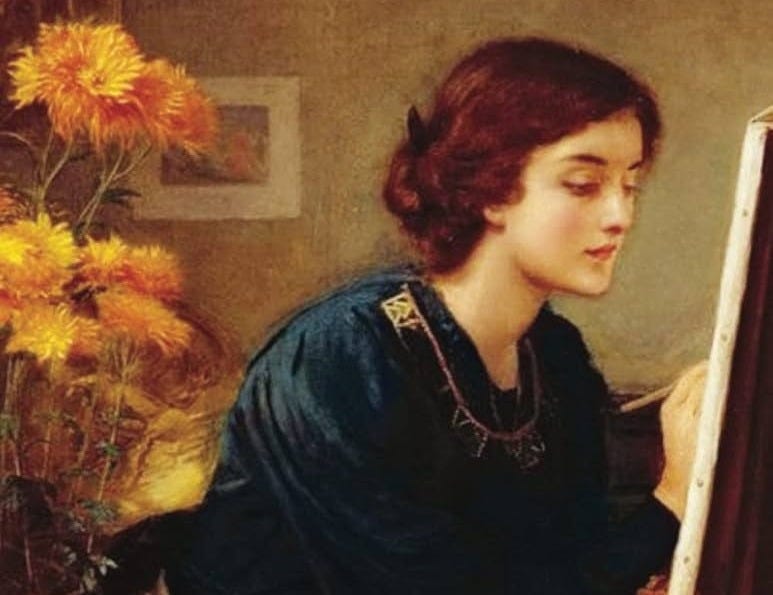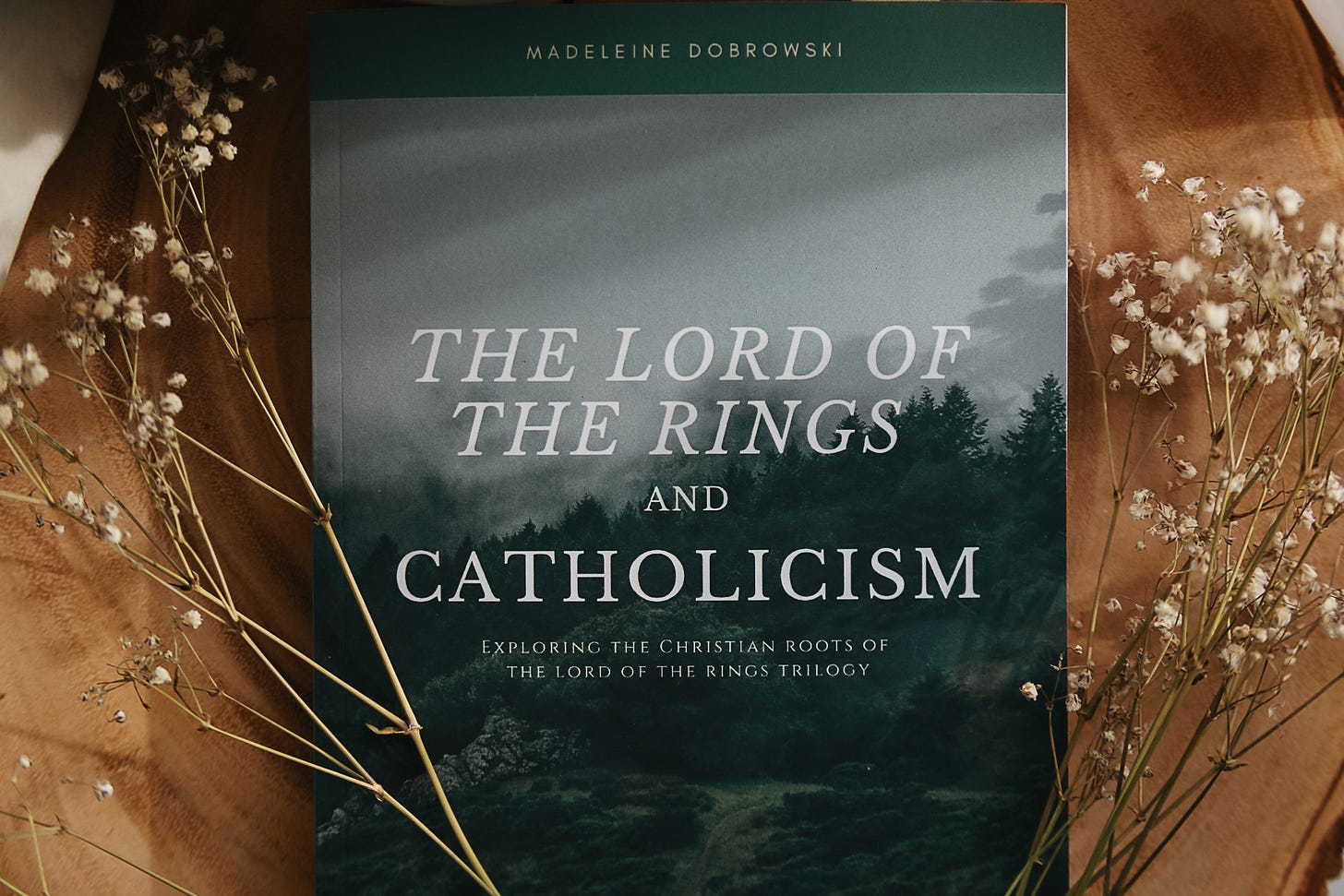Have you ever read a book that flipped your expectations? I have. The Tenant of Wildfell Hall by Anne Bronte was my first read of 2025, and I positively devoured it. I have not read a book that quickly in years (except maybe The Hunger Games, but I attribute that to choppy writing and my hurry to be done with it). I ripped right through Bronte’s novel, finishing it in less than two weeks. It was riveting.
I was told at first that this was a feminist novel. The back of my flower-embossed Chiltern edition describes the book as “a seminal work in feminist literature.” Not being a feminist myself (at least not in the modern sense of the term), I really wasn’t sure what to expect. However, something about the plot summary told me that there was more to the story than first meets the eye. (Also, if I am being honest, I bought it for the cover… I can’t resist those Chiltern classics!)
Reading the author’s note at the beginning only furthered my hunch that perhaps the modern interpretation of the story was more of a projection of current ideals than a reflection of the work itself. In the note Anne Bronte addresses the misconceptions that hounded the book after its release. She offers a sort of apologetic defense, stating that her intention was not to write something unnecessarily dark; nor was it to write something vulgar. Rather, she wanted to write something important, true, and hopeful. After turning the final page, I can say I believe she accomplished her goal. The modern world may look at the heroine, Helen Graham, as a model of feminism. But that is far from what I found in the pages of the story.
In the beginning we are introduced to a young Helen. She is full of the hopes of her blossoming youth. She looks for love without prudence and despite her best intentions, falls in the path of a rake by the name of Arthur Huntingdon. Huntingdon professes his undying love for Helen and promises madly to amend his ways if she will give him her hand. Despite the warnings of her friends and mentors, Helen agrees. She is confident in her power to reform him. What follows is a painful account of her fall from bliss into the reality of an abusive marriage.
Under the weight of her husband’s authority, Helen endures manipulation and verbal and emotional abuse. She watches as he turns everyone against her, including her son. The first thing that struck me, however, is that Helen does not blame her husband alone for her unhappiness. She blames him for his evil ways, but she recognizes that she entered the marriage willfully, against her own better judgment. For all of the injustice she suffers, Helen retains a clear view of things. She knows she is not to blame for her husband’s faults. But she also sees her own fault in choosing such a man, and she resolves to never shirk her conscience again.
When Huntingdon’s brutish habits become truly egregious, Helen makes the decision to flee from home, taking her child to a place where she can raise him in secret, without the vicious influence of his father. By this point in the story, I was already convinced that our young heroine was not the typical feminist type. But here she really broke away from the expected narrative.
The world today would applaud Helen for her courage to leave her situation, and they would be right to do so. No woman ought to endure such treatment, regardless of societal expectations. Some, however, might go even further. They might justify Helen in raising a battle cry of revenge, in hating her husband and intentionally spiting him. At the very least, they wouldn’t bat an eye if she entered into a love affair of her own.
Reviews of the novel claim that this is a story about a woman “asserting her rights” and “making her own way in the world.” However, that account does not entirely line up with Helen’s next course of action. In Helen, I did not see a bitter woman trying desperately to reclaim happiness. Instead I saw a woman who was willing to suffer, willing to forgive, willing to do almost anything except offend her conscience.
Helen’s efforts in the second half of the book are not directed at revenge, nor does she hope to escape simply in order to “make herself happy.” Her motivations are more pure, more selfless. She leaves her home, yes, but only reluctantly, and not out of an inordinate attachment to her abuser. She genuinely wants to make the best decision concerning her marriage and her son. She has long ceased to feel affection for her husband, but she still desires to stay if she can. Why? Because she made a vow and she wants to fulfill it.
Here is the important question we ought to ask: If the message of this story was simply one of mainstream feminism, then why doesn’t Helen yield to her desires? She is given countless opportunities throughout the novel. She is courted by suitors, both worthy and unworthy, who feel compassion for her situation; she delays leaving her home until it is absolutely necessary. Perhaps most surprisingly of all, she freely chooses to return when she hears that her husband is in need. If anything it seems that Helen Graham has done the opposite of what feminism would advise. She has the opportunity to take back her life, her freedom, and prioritize her own happiness; but she resists. Like Jane Eyre, she is presented with every argument as to why one should breach one’s marriage vows. But, in that spirit of beautiful feminine courage that is captured so well by the Bronte sisters, she holds firm to the conviction that she would rather be miserable in this life if it means securing her happiness in the next. If that means living with a faithless husband, she will do it. If it means living alone as a recluse, she will do it. The one thing she will not do is violate her conscience as a wife, a mother, and a Christian.
Why is Helen so obstinately moral, we might ask? Is it because she is prideful? Does she hold herself up as superior over her husband? On the contrary. She loves him to the end, not with the affection of emotions, but with a conviction to will his good, despite what he does to her. If she can bring him some good, she will do it, even if he throws it back in her face. Helen comforts herself not with a vindictive pursuit of her own interests, but with a selfless pursuit of heaven. It is love that motivates Helen to remain faithful to a faithless spouse; not the imprudent love of youth nor the broken love of an abuse victim but genuine, sober, Christian love.
Anyone who reads this book with an honest eye will undoubtedly recognize two things. First, this is not a book about feminism. To call it such is to miss the mark. It is a book about heroic love and the triumph of hope over suffering. It is the story of a woman who had every reason to throw morality to the wind, a woman who was beaten down, but who refused to sacrifice her principles to her passions. Anne Bronte’s novel asks the important question: What does it look like for a woman to live virtuously under such terrible conditions? Helen finds the middle ground. She doesn’t sacrifice her safety or that of her son’s; but she also doesn’t abandon her vows for the sake of earthly freedom.
It is also a story of compassion. Anne Bronte writes with tender mercy for those who live out a story like Helen’s. I can’t imagine the courage it took for her to write this at a time when society had not yet learned to sympathize with such experiences.
The Bronte sisters have yet again amazed me with their ability to write so clearly about matters that are at once so sublimely spiritual and humanly messy. I cannot say much more than to encourage you to obtain a copy of this book for yourself. Let Anne Bronte take you on a beautiful journey, and judge for yourself if you think Helen Graham is a model of feminist ideals, or if she is, more simply, a Christian.
Maddie Dobrowski is an author and classical educator. Her recently published book, “The Lord of the Rings and Catholicism,” can be found here.




I think what you're rubbing up against is a difference of definitions. When you say "feminism", I get the sense you're talking about third wave feminism. The feminism they're talking about is just about empowering women to have freedom. It is a feminist book specifically because it depicted a woman making her own decisions based on what she felt was right. That in itself was a radical idea at the time it was written. It is an extremely feminist book, but it is not third-wave feminist.
This book is definitely an under appreciated beauty!